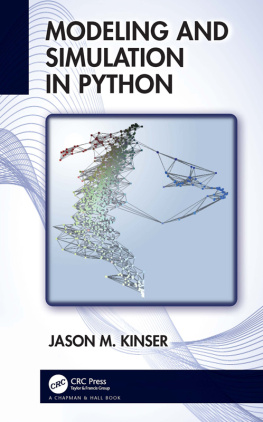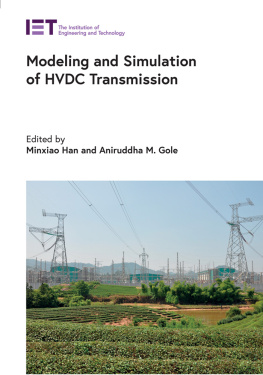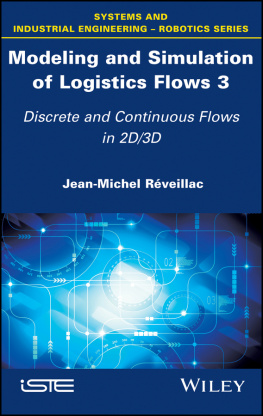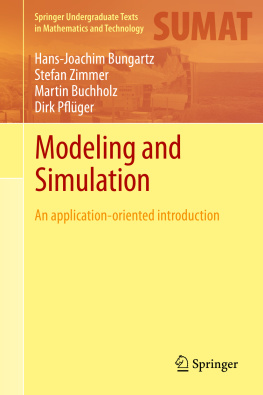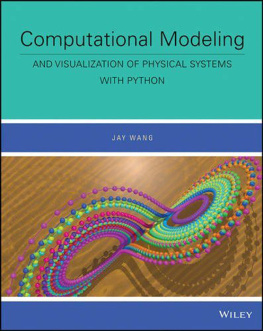Voinea - Political Attitudes Computational and Simulation Modeling
Here you can read online Voinea - Political Attitudes Computational and Simulation Modeling full text of the book (entire story) in english for free. Download pdf and epub, get meaning, cover and reviews about this ebook. year: 2016, publisher: John Wiley & Sons, Incorporated, genre: Politics. Description of the work, (preface) as well as reviews are available. Best literature library LitArk.com created for fans of good reading and offers a wide selection of genres:
Romance novel
Science fiction
Adventure
Detective
Science
History
Home and family
Prose
Art
Politics
Computer
Non-fiction
Religion
Business
Children
Humor
Choose a favorite category and find really read worthwhile books. Enjoy immersion in the world of imagination, feel the emotions of the characters or learn something new for yourself, make an fascinating discovery.

Political Attitudes Computational and Simulation Modeling: summary, description and annotation
We offer to read an annotation, description, summary or preface (depends on what the author of the book "Political Attitudes Computational and Simulation Modeling" wrote himself). If you haven't found the necessary information about the book — write in the comments, we will try to find it.
Voinea: author's other books
Who wrote Political Attitudes Computational and Simulation Modeling? Find out the surname, the name of the author of the book and a list of all author's works by series.
Political Attitudes Computational and Simulation Modeling — read online for free the complete book (whole text) full work
Below is the text of the book, divided by pages. System saving the place of the last page read, allows you to conveniently read the book "Political Attitudes Computational and Simulation Modeling" online for free, without having to search again every time where you left off. Put a bookmark, and you can go to the page where you finished reading at any time.
Font size:
Interval:
Bookmark:
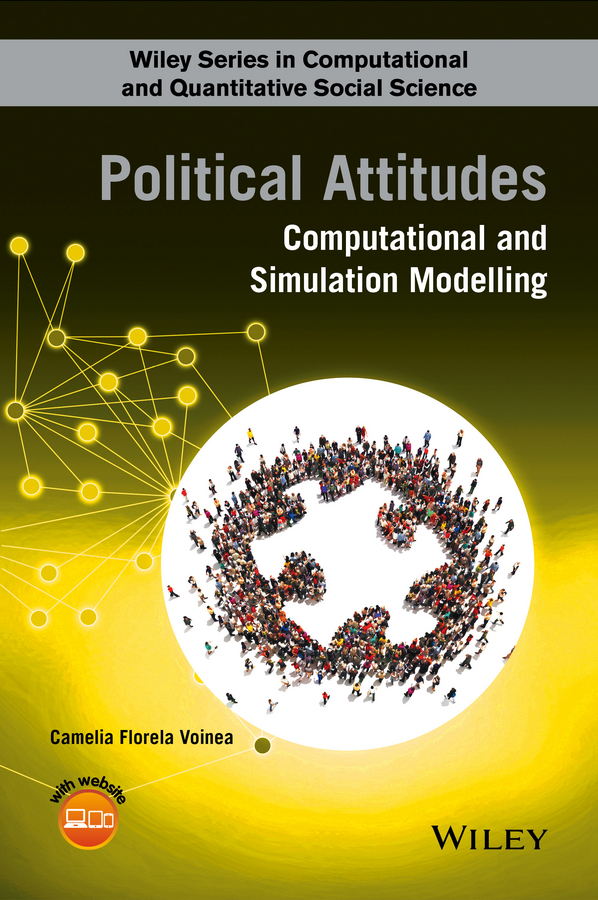
- Chapter 03
- Chapter 04
- Chapter 05
- Chapter 06
- Chapter 07
- Chapter 08
- Chapter 12
- Chapter 17
- Chapter 19
- Chapter 20
Behavioral Computational Social Science
by Riccardo Boero
July 2015
Tipping Points: Modelling Social Problems and Health
by John Bissell (Editor), Camila Caiado (Editor), Sarah Curtis (Editor), Michael Goldstein (Editor), Brian Straughan (Editor)
April 2015
Understanding Large Temporal Networks and Spatial Networks:
Exploration, Pattern Searching, Visualization and Network Evolution
by Vladimir Batagelj, Patrick Doreian, Anuska Ferligoj, Natasa Kejzar
September 2014
Analytical Sociology: Actions and Networks
by Gianluca Manzo (Editor)
March 2014
Computational Approaches to Studying the Coevolution of Networks and Behavior in Social Dilemmas
by Rense Corten
February 2014
The Visualisation of Spatial Social Structure
by Danny Dorling
August 2012
Camelia Florela Voinea
Department of Political Science, International Relations and Security Studies, University of Bucharest, Bucharest, Romania

This edition first published 2016
2016 John Wiley & Sons, Ltd
Registered Office
John Wiley & Sons, Ltd, The Atrium, Southern Gate, Chichester, West Sussex, PO19 8SQ, United Kingdom
For details of our global editorial offices, for customer services and for information about how to apply for permission to reuse the copyright material in this book please see our website at www.wiley.com.
The right of the author to be identified as the author of this work has been asserted in accordance with the Copyright, Designs and Patents Act 1988.
All rights reserved. No part of this publication may be reproduced, stored in a retrieval system, or transmitted, in any form or by any means, electronic, mechanical, photocopying, recording or otherwise, except as permitted by the UK Copyright, Designs and Patents Act 1988, without the prior permission of the publisher.
Wiley also publishes its books in a variety of electronic formats. Some content that appears in print may not be available in electronic books.
Designations used by companies to distinguish their products are often claimed as trademarks. All brand names and product names used in this book are trade names, service marks, trademarks or registered trademarks of their respective owners. The publisher is not associated with any product or vendor mentioned in this book.
Limit of Liability/Disclaimer of Warranty: While the publisher and author have used their best efforts in preparing this book, they make no representations or warranties with respect to the accuracy or completeness of the contents of this book and specifically disclaim any implied warranties of merchantability or fitness for a particular purpose. It is sold on the understanding that the publisher is not engaged in rendering professional services and neither the publisher nor the author shall be liable for damages arising herefrom. If professional advice or other expert assistance is required, the services of a competent professional should be sought.
Library of Congress CataloginginPublication data applied for
ISBN: 9781118833148
A catalogue record for this book is available from the British Library.
Cover Image: DigtialStorm/Getty
To My Parents, Puica and Martinel
Once strongly conceived by both its schoolmasters and apprentices as an exclusive area of qualitative research, political science nonetheless developed during the twentieth century on experimental research dimensions. This systematic orientation took almost one century to get established on solid methodological and epistemological backgrounds. Though quite long, this process has proved wrong all those who either occasionally or systematically blamed, contested or doubted that political science had tremendous potential for quantitative analysis and an everincreasing appetite for paradigmatic change.
Otherwise unavoidable, this process of change was sustained and reinforced by technological advances which enhanced the use of artificial media from single computer platforms to computer networks and the Internet. Huge volumes of public survey data put considerable pressure on the capacity of political science methodology to face the challenge of data processing. This kind of pressure demanded a powerful response. All this transformed the exquisite analytical machine, developed and refined over the entire past century, into what has only lately been established as Experimental Political Science (Druckman et al., 2011). This has revealed, first and foremost, how political science has employed experimental research and rich analytical resources to understand, explain and predict political phenomena, no matter if we talk about the outcomes of elections, about the variability of public opinion or about the public perception and the sustainability of governmental policies. This is but one of the trends which explain the methodological and paradigmatic shift toward enforcing experimental research. This has placed the utility of experimental and analytical research beyond doubt. However, utility alone would not be able to describe the everincreasing research methodological needs in political science. In fact, it has not. Instead, it has complicated the methodology picture in one particular area of political science research: modelling.
It was precisely in the modelling area that the sociological and political methodology research based on empirical data had its golden age: the age of the nomothetic modelling approach working on modelinvariant patterns in huge volumes of empirical data. However, it was also here where its decline started.
The modelling area, especially the realm of the nomothetic theory of modelling, proved to be a true battlefield for two competing methodological approaches: while one, namely Experimental Political Science, seems to have lost terrain and prestige as its performances diminish after a centurylong dominance and a stable period of development, the other one, namely Computational Political Science, seems to have currently emerged in a sustained (and sustainable) effort to replace the nomothetic modelling paradigm with the complexityoriented paradigmatic alternatives reinforced by the new artificial life technologies. The nomothetic view in the political science methodological picture has finally run out of breath, crashed by mountains of survey data, rigidly anchored in determinism and modelinvariant patterns, stiffened in too static a paradigm.
Notwithstanding high recognition, survey analytical research has been the target of harsh criticism. The reasons, now and then, concern not only measurement issues, but mainly the true capacity of survey data to provide for the modelling of realworld phenomena on large scales and in highly complex contexts. One of the longstanding criticisms against the experimental methods and their analytical approach targets the static perspective provided by the empirical models. In political science research, this issue has a particular relevance, since political phenomena show not only high variability, but also sophisticated degrees of context dependency whose complexity could hardly be captured by empirical data and theoretical modelling. Panel techniques as well as longitudinal analytical studies have thus forced penetration of the mathematicalstatistics theories and instruments aimed at overcoming this weakness. Moreover, the subsequently developed mathematical design of dynamic nonlinear variablebased modelling has added value to the analytical power of the theoretical models. Besides the strong requirements for the processing of massive amounts of survey data in empirical research, the study of the spacetime unfolding of political phenomena raised one more challenge: complexity. To cope with it, a new modelling paradigm was needed. And this reinforced the demands for a change in political modelling methodology.
Next pageFont size:
Interval:
Bookmark:
Similar books «Political Attitudes Computational and Simulation Modeling»
Look at similar books to Political Attitudes Computational and Simulation Modeling. We have selected literature similar in name and meaning in the hope of providing readers with more options to find new, interesting, not yet read works.
Discussion, reviews of the book Political Attitudes Computational and Simulation Modeling and just readers' own opinions. Leave your comments, write what you think about the work, its meaning or the main characters. Specify what exactly you liked and what you didn't like, and why you think so.

